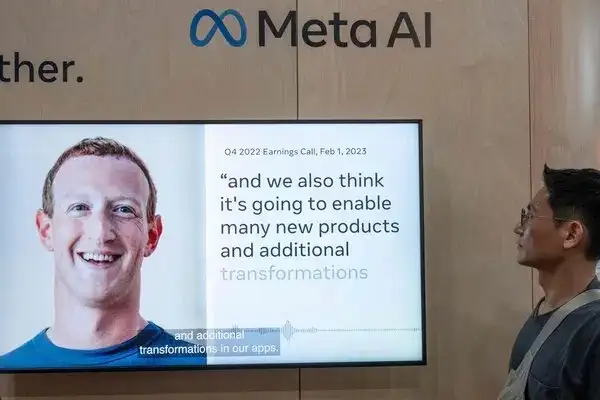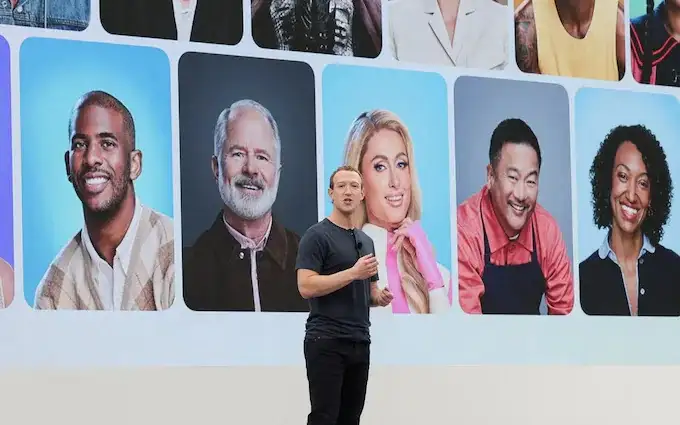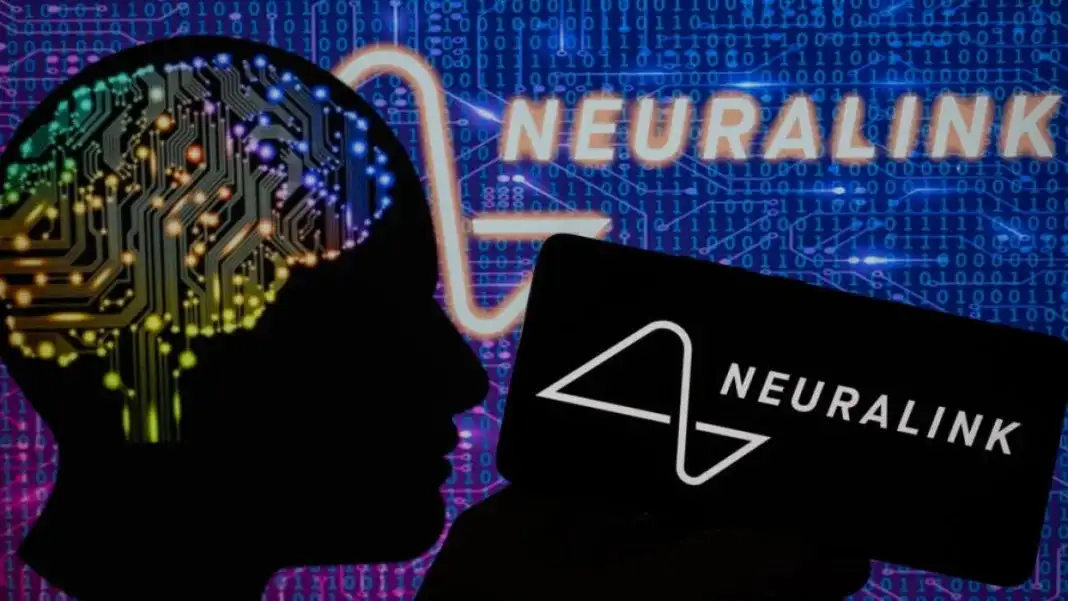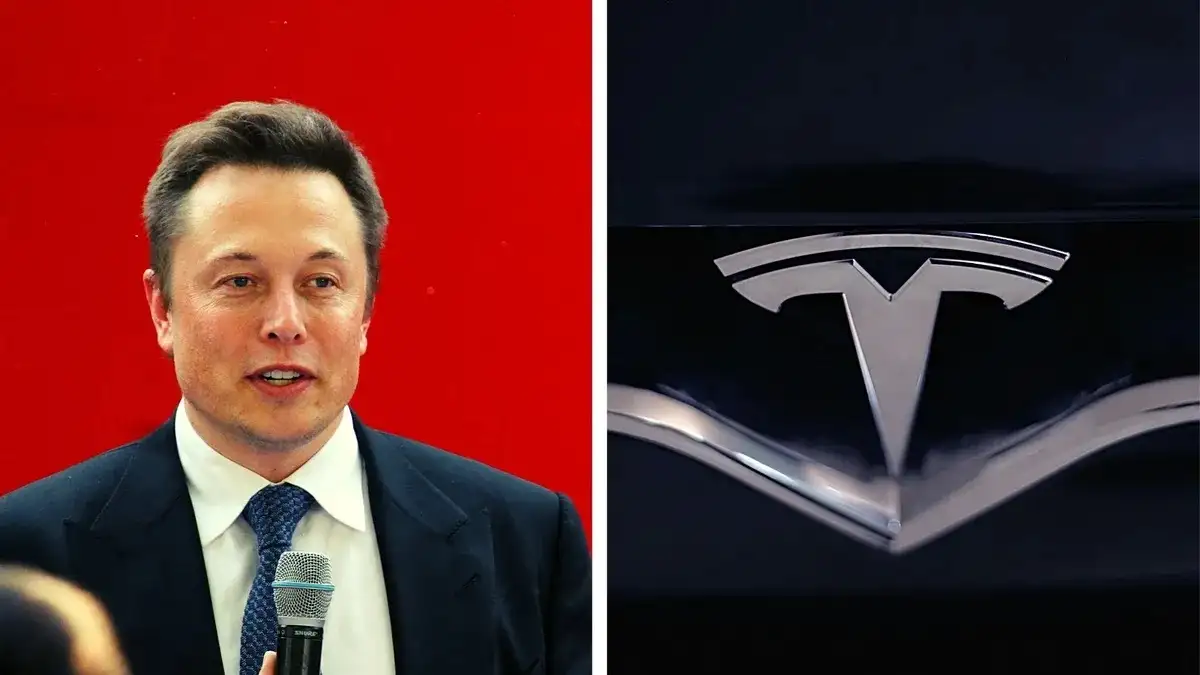Following the collapse of the metaverse, Mark Zuckerberg, CEO of Meta, is betting on the future of artificial intelligence.
Meta’s AI research group was created in 2013 by Yann LeCun, a well-known computer scientist who specializes in artificial intelligence. However, Mark Zuckerberg seems to have lost interest in this sector when his latest metaverse bet failed.
Mark Zuckerberg and the Failure of Metaverse

Meta’s significant investment in the metaverse is progressively failing. The corporation has lost over $50 billion on this endeavor, yet people are still uninterested in the experience.
Meta’s primary social network company is huge and lucrative, but the days of fast expansion are ended. Some of the company’s workers have complained about the difficulties of innovation, claiming that Meta’s bureaucracy has caused brilliant individuals to leave.
“Mark Zuckerberg knew something was coming, but I think betting on the metaverse was a mistake,” a former Meta employee stated.
However, Meta CEO Mark Zuckerberg is still devoted to his idea. He believes that the metaverse is the future of the internet and will be worth trillions of dollars.
However, Meta’s latest steps hint that the corporation is turning to AI. According to Bloomberg, Zuckerberg spoke with Sundar Pichai, CEO of Google, in 2021. Following that talk, Zuckerberg went to Meta’s Menlo Park offices and requested that the research team compile a summary of all recent AI work.
“Mark has learned a lot,” said Jerome Pesenti, a former Meta AI vice president.
Meta was initially interested in AI as a means of realizing Zuckerberg’s vision of the metaverse. However, the release of ChatGPT at the end of 2022 caused the firm to reconsider. ChatGPT is a big language model created by OpenAI. This model is capable of generating text, translating languages, writing various types of creative material, and providing thorough answers.
Meta has identified AI’s promise in domains other than the metaverse, including virtual assistants, customer service, and advertising. The corporation has made big investments in these areas and is seeing results.
“Meta’s success in developing general AI and open models like Llama, which has been downloaded over 100 million times, speaks volumes,” a Meta spokeswoman told Bloomberg via email.
With the transition to AI, Meta is attempting to chart a new course for the future. Despite the metaverse’s failings, the firm expects that AI will help Meta maintain its leadership position in the technology market.
Finding New Hope from AI
The release of ChatGPT in 2022 triggered a global AI boom. AI startups raised billions of dollars, while major businesses such as Nvidia and Microsoft had rapid growth.

In this setting, the public’s interest in Meta’s metaverse has waned significantly, making Zuckerberg’s transition to virtual reality a slow failure. Meta’s AI branch, which was previously mainly independent, progressively gained importance and achieved substantial advances.
Meta’s AI efforts have resulted in several significant advances, including the development of PyTorch, a popular software tool for developers to construct AI applications, and the release of gaming bots.
However, Meta has yet to build many consumer-facing AI-powered devices. Instead, the firm largely employs artificial intelligence (AI) to rate and promote content to Facebook and Instagram users, as well as assist marketers in tracking consumer activity.
Meta, unlike Microsoft, OpenAI, and Google, does not rely on the sale of AI tools to generate revenue. Instead, the corporation earns the most from utilizing artificial intelligence to keep customers engaged with its applications. Meta’s approach is to keep its AI models free and gain an edge by developing goods and services around them.
“AI will be our largest investment area in 2024. In October 2023, Zuckerberg warned investors that Meta will continue to de-prioritize several non-AI initiatives within the corporation in order to transfer personnel into the field of artificial intelligence.
Tejas Dessai, a research analyst at Global X ETFs, believes Meta might provide AI tools on a subscription basis or sell its models to other firms.
“These new businesses could become a significant source of revenue for Meta in the years to come,” added Dessai.
Zuckerberg is constantly informed about what the company’s AI experts are working on, and he frequently wishes to be the driving force behind their efforts.
Mark Zuckerberg’s investment on AI is risky, but it might pay out handsomely if the business successfully develops and commercializes new AI-powered goods and services.















